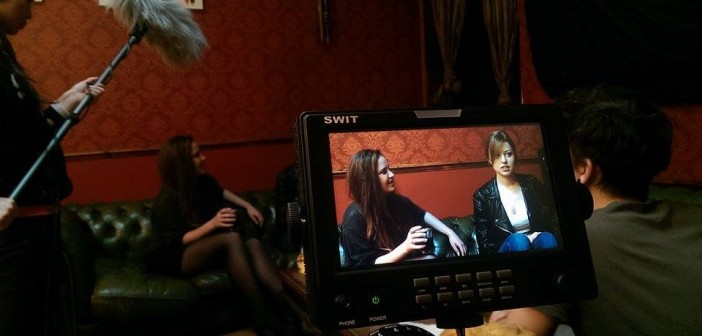Bad sound is by far young filmmakers’ most common mistake. But why is it such a big hurdle?
by Dave Marian, MA
Festivals and screening events receive so many submissions with superb camera work, flawless editing, and beautiful color grading. Curators often have a hard time picking their favorites. But as soon as the speakers are turned on you hear noises, dialogue levels are uneven or out of sync and sound effects are cut off.
Job specifications
Although courses and schools stress its importance, good audio it is still a huge issue. Many times the person in charge of sound is just some random guy chosen for his ability to hold a long pole. However, recording good on-set audio is much more of an intricate craft. While big productions have the luxury of assigning another person for each aspect of a job, indie filmmaking calls for multitasking. The boom operator is not just a flexible microphone stand but an active part of the procedure. He has to know the position of the camera and the audience, has to imagine what they are supposed to hear and serve as a filter to identify unwelcome sounds and if possible evade them. He serves, in a very literal sense, as the director’s ears and gives him the freedom to focus on his actors.
Unpopular position
So why isn’t there always a good sound person on set? One reason is that on-set sound is not considered a very exciting profession. The vast majority of young filmmakers choose their field out of a passion for images and the visual appeal. Their goal is to be a director, director of photography or camera operator. Those literate in audio production on the other hand want to become musicians. Film producers often have a hard time finding a suitable candidate to fill the position of the boom operator. Having a non-professional on team is more often than not a necessity, not a choice.
It’s all about communication
Even if you are lucky enough to get a decent sound guy, you cannot ensure a satisfying result. That leads to the second, more pressing problem in indie film sound: Lack of communication. Sound operators and even musicians are only introduced to the later stages of the project. Of course there are exceptions but at this time pre-production is almost over. For a musician that is not so much of a problem, but the sound operator’s work can suffer a lot. If you are not able to discuss basic necessities early on you end up in a variety of unfavorable situations. Trying to catch dialogue in a noisy bar or next to a humming air conditioner is no fun for anyone.
In theory the solution is simple: Include your sound operator in the pre-production meetings. You will be surprise how many situations can be handled, if you let your sound guy prepare for it.
The conclusion is that smaller film teams tend to have problems with their audio for two main reasons:
– Unqualified personnel
– Lack of Communication
My shout out therefore goes to the production departments: Finding the right person to record your sounds can be painful. Make sure that whoever takes this job, knows what he is supposed to do and take your time to prepare him or her as good as possible. Good preparation and communication go a long way.
_________________________
Dave Marian (03/12/1988) graduated from SAE Vienna in Audio Production and got his MA in Creative Media Practice at University of Sussex, Brighton. He is working freelance as sound designer and composer for film and games and is currently living in Brighton/UK.



1 Comment
Pingback: On Set Sound and Indie Film - davemarian